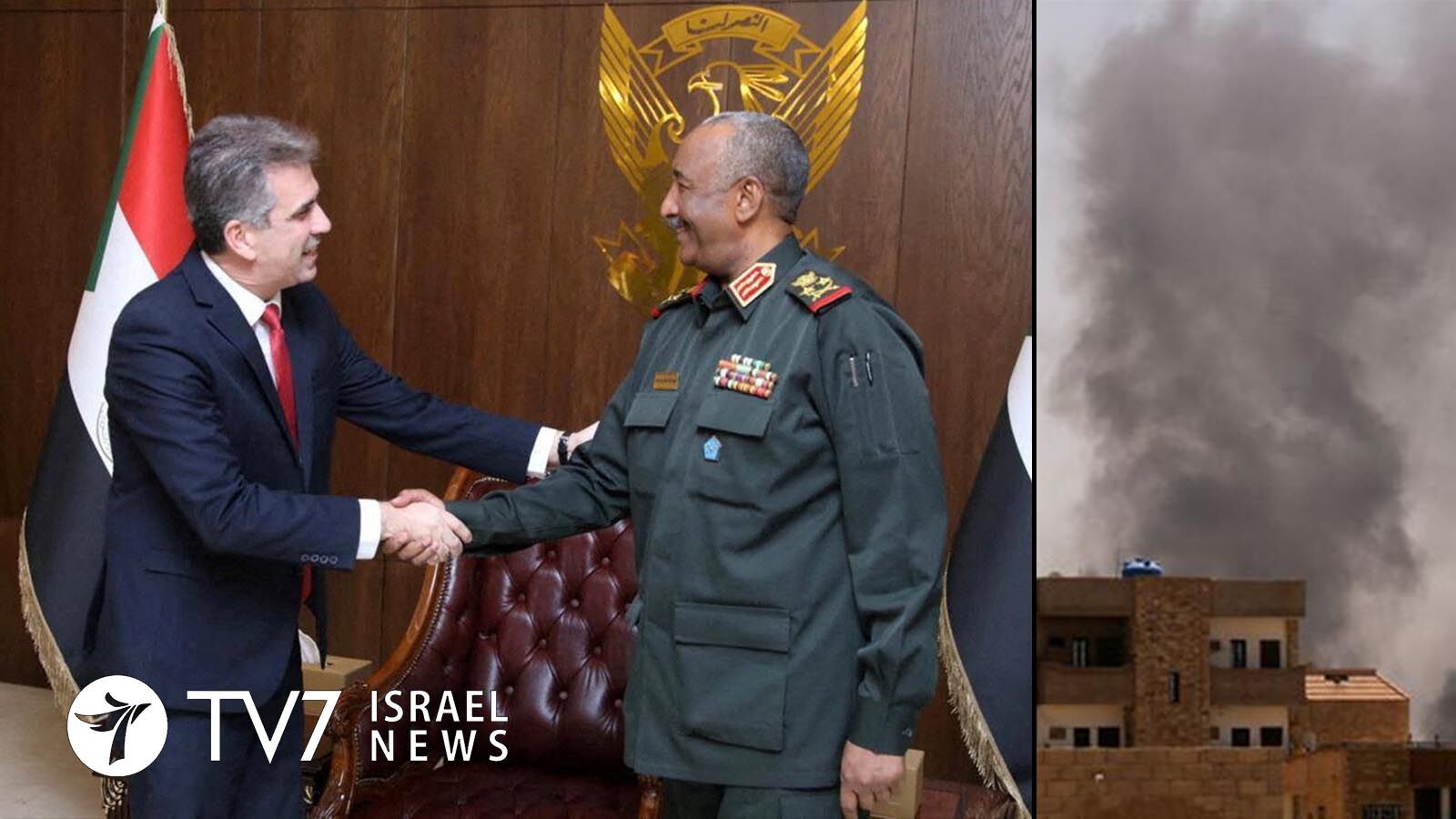Battle erupted between the Sudan Armed Forces (SAF) and paramilitary Rapid Support Forces (RSF) on 15 April.
By Erin Viner
Israel has proposed hosting the rival Sudanese leaders for ceasefire talks progress in mediation efforts led by a senior Israeli official over the past few days.
“Since fighting erupted in the country, Israel has been operating in various channels to reach a ceasefire, and the progress over the past few days in discussions with the sides is very promising,” Foreign Minister Eli Cohen said in a statement.
The statement provided no further details other than saying the official had been holding discussions with the warring generals.
Sudan and Israel announced in February they had finalized a deal to normalize ties, with the signing due to follow a transfer of power from the military to a civilian government in Khartoum.
Minister Cohen expressed hope that Israeli efforts to achieve calm in Sudan “would allow for the signing of a historic peace agreement.”
Fighting flared again last night despite a ceasefire declaration by the SAF and the RSF for a 72-hour ceasefire that began earlier in the day following negotiations mediated by the United States and Saudi Arabia.
United Nations Special Envoy on Sudan Volker Perthes told the Security Council on Tuesday that while the ceasefire “seems to be holding in some parts so far,” neither party has shown readiness to “seriously negotiate, suggesting that both think that securing a military victory over the other is possible.”
The outbreak of hostilities has derailed Sudan‘s transition to civilian democracy, as the army launches airstrikes on paramilitaries embedded in residential districts that have been turned into battlefields.
At least 459 people have been killed and another 4,000 wounded by air strikes and artillery fire, which have also destroyed hospitals and limited food distribution in a nation where a nearly 16 million people – one-third of the 46 million total population – rely on humanitarian aid.
Sudan’s toppled leader Omar al-Bashir – who came to power in a 1989 military coup and was ousted in a popular uprising in 2019 – was reportedly moved along with his former Minister Ahmed Haroun from Kober prison before heavy fighting broke out. Both men are wanted by the International Criminal Court (ICC) on charges of war crimes and crimes against humanity during a genocidal campaign carried out in 2003 and 2004.
The World Health Organization (WHO) stated that one of the warring parties took control of a national health facility in Khartoum, raising concerns over the potential outbreak of biological hazards from measles and cholera pathogens for vaccinations stored there.
An exodus of embassies and aid workers from Africa’s third-largest country has raised fears that civilians who remain will be in greater danger if the shaky three-day truce deal, which expires on Thursday, does not hold.
US President Joe Biden’s national security team is continuing to talk to Sudan’s rival military leaders to end fighting and provide humanitarian aid, said a White House spokesperson yesterday.
The fighting has paralyzed hospitals and other essential services, leaving many people stranded in their homes with dwindling supplies of food and water. With bodies scattered in the streets, international aid group Medecins sans Frontieres (MSF) said it had been unable to get fresh supplies or personnel into Sudan. The UN Office for the Coordination of Humanitarian Affairs (OCHA) said shortages of food, water, medicines and fuel are becoming “extremely acute,” and that it has been forced to cut back operations for safety reasons.
The conflict has given rise to deep concern that hundreds of thousands of Sudanese may flee into neighboring countries.
UN Secretary General António Guterres has described the violence and chaos in Sudan as “heartbreaking,” saying that the power struggle puts Sudan’s future at risk and could cause suffering for years and set back development for decades.
The United Nations has moved hundreds of staff and family members to Port Sudan from Khartoum. Germany has ended its operation to evacuate people from Sudan, with over 700 people flown out of the country, including around 200 German citizens. Britain has already evacuated 200-300 of its citizens, said Interior Minister Suella Braverman earlier today, adding that an “extensive operation” is underway to help other Britons stranded in the North African country.
